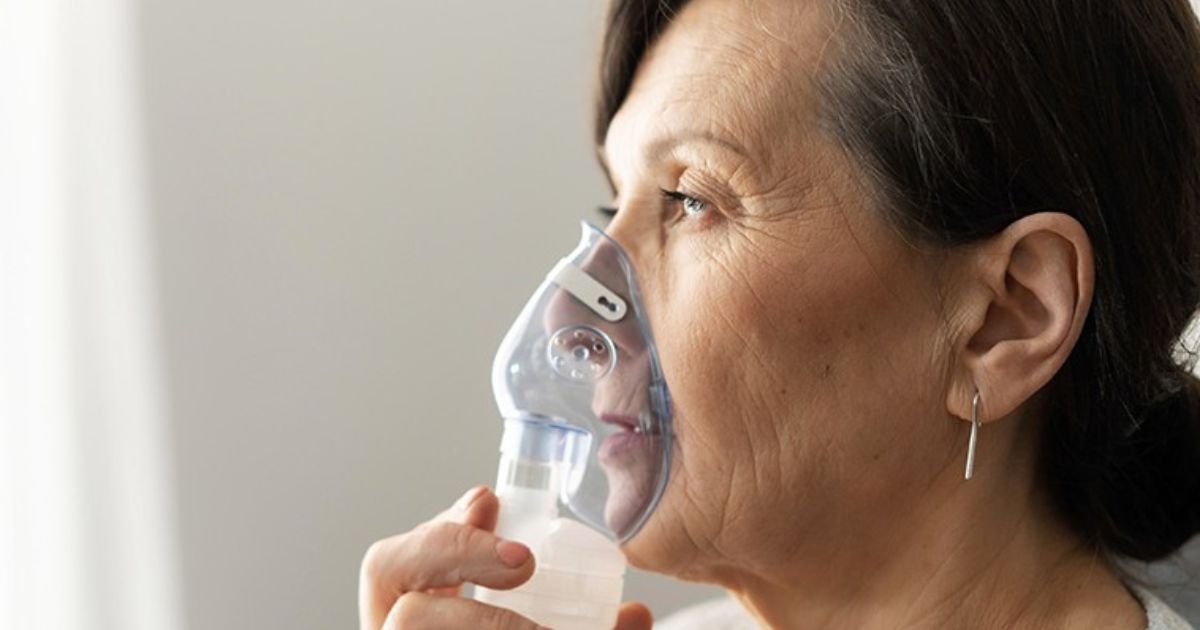Chronic Obstructive Pulmonary Disease (COPD) is a difficult health problem, where there is a gradual obstruction of airflow through the lungs, causing significant difficulties in breathing.
To identify it better, there are consistent respiratory symptoms that range from breathlessness to persistent wheezing, tightness in the chest and chronic cough.
Typically, this chronic condition stems from prolonged exposure to different airborne irritants like cigarette smoke, dust particles and some harmful fumes found in specific environments or jobsites.
Although a definitive cure for COPD is not yet available, there are several approaches that can be used to slow down its progression, manage symptoms and enhance quality of life through various treatments.
Nevertheless, COPD has far-reaching implications beyond its impact on airways which are already compromised.
This long-standing illness affects mental health profoundly which is fundamental to general well-being across all areas.
Anxiety and depression combine with physical limitations imposed by the illness, drastically influencing overall health of victims.
A notable psychiatrist Dr Saras Prasad based at Yatharth Super Speciality Hospital at Noida Extension said that there exists a close link between chronic obstructive pulmonary disease (COPD) and mental health.
As he pointed out “The rate of depression among patients suffering from COPD is 2-3 times higher compared to the general population as they also have higher rates of anxiety disorders.”
Moreover, Dr Prasad further explains how mental health becomes restricted by physical limiters imposed by COPD.
“Struggling for breaths every second; living with constant trepidation of becoming worse off; inability to do things you once loved doing—all these result to feelings of isolation, despair helplessness thus triggering depression and anxiety.”
A contrary view however comes from Dr Sameer Malhotra who is the Director & Head of Department-Mental Health & Behavioural Sciences at Max Super Speciality Hospital Saket.
It encompasses hormonal interplay as well as chemical and immune systems. “Mental health translates into healthy life styles,” he adds.
He provides how smoking, an addictive behavior, greatly contributes towards COPD as it has more than 4800 chemicals inside cigarettes.
“Under extreme distress, stress hormones and chemicals are released which causes rapid breathing that can trigger COPD.”
Dr Malhotra goes deeper into this count explaining why anxiety and depression are very common among people who suffer from Chronic Obstructive Pulmonary Disease (COPD) as compared to the general population.
Moreover, he elaborates on how COPD can potentially cause concerns about cognitive decline influencing multiple cognitive domains such as but not limited to processing of information, attention, concentration, memory, executive functions and self-regulation.
The effect that chronic obstructive pulmonary disease (COPD) has on mental health is intricate and complex comprising the limitations due to physical constraints as well as existential concerns through which an individual’s psychological strains become coupled with physiological triggers.
The latter exacerbates the psychological burden these individuals find themselves in when dealing with the persistent and challenging nature of this ailment.
COPD does not just refer to the management of physical symptoms but rather, it implies a comprehensive strategy that also embraces mental health support, transformations in lifestyles and an increased understanding of the deep links between physical diseases and psychology.
Thus, there is need for a synergy between medical interventions, therapeutic assistance and lifestyle adaptations in order to navigate through the complex terrain of COPD while mitigating its adverse effects on both body and mind.
In conclusion, the narrative surrounding Chronic Obstructive Pulmonary Disease (COPD) is intricate as it involves several mental health complications.
The interdisciplinary nature underlies the need for a comprehensive approach to improving life quality for individuals who face persistent and disabling consequences of this condition.
Addressing COPD extends beyond managing physical symptoms; it demands a holistic approach that integrates mental health support, lifestyle adjustments, and a deeper comprehension of the intricate connection between physical ailments and psychological well-being.
The synergy between medical interventions, therapeutic assistance, and lifestyle adaptations is crucial in navigating the intricate landscape of COPD, mitigating its impact on both the body and mind.
In conclusion, the narrative encompassing Chronic Obstructive Pulmonary Disease (COPD) is multifaceted and intricate, involving various mental health complexities.
This multifarious nature underscores the imperative need for a comprehensive and holistic approach to improve the overall quality of life for individuals who are confronting the persistent and challenging effects of this condition.




























